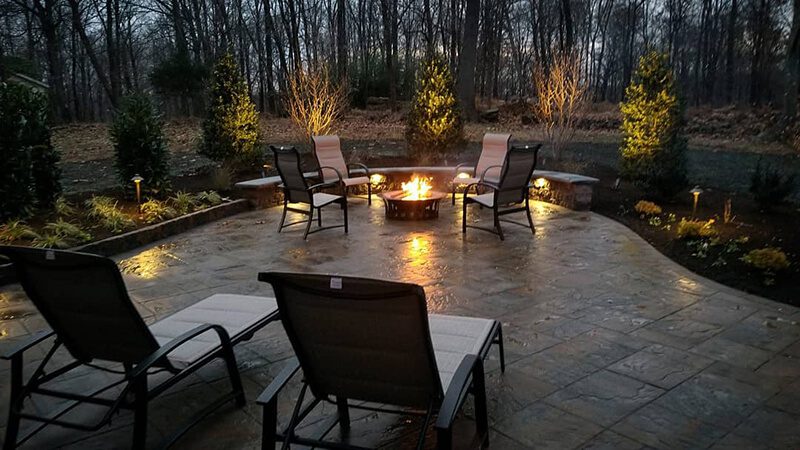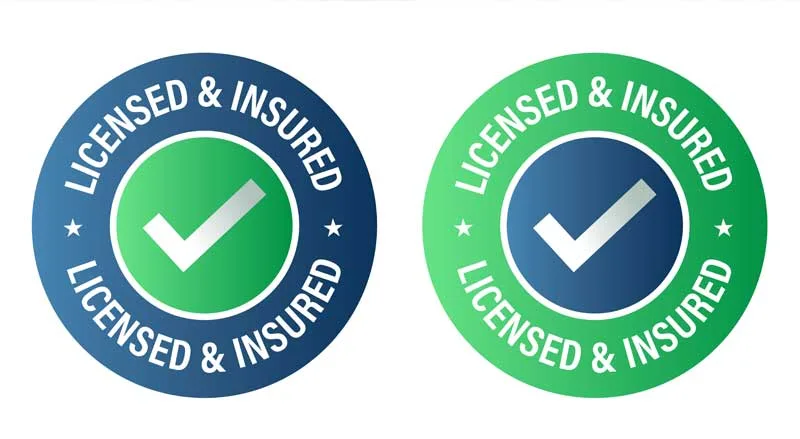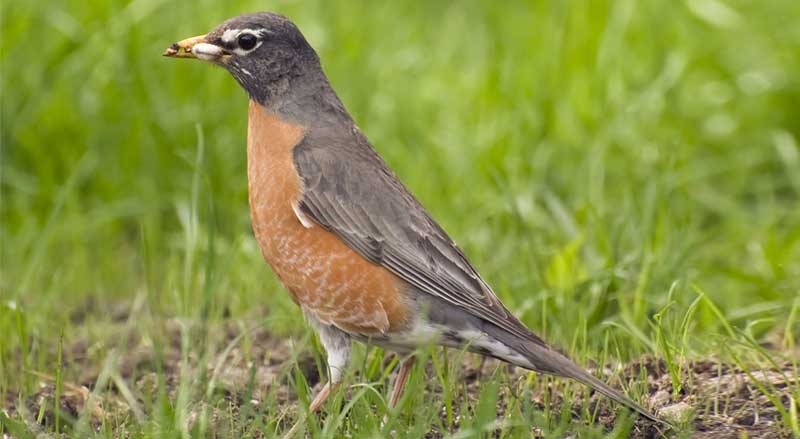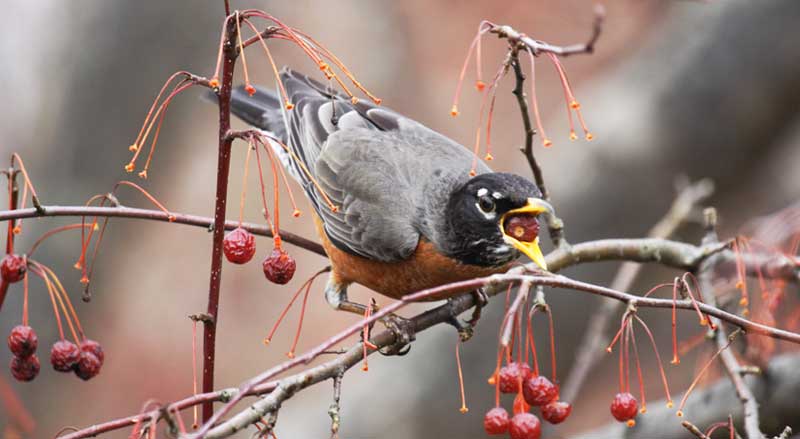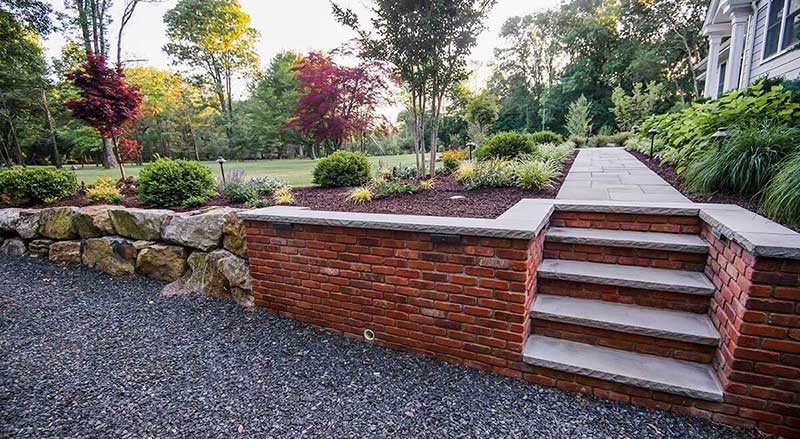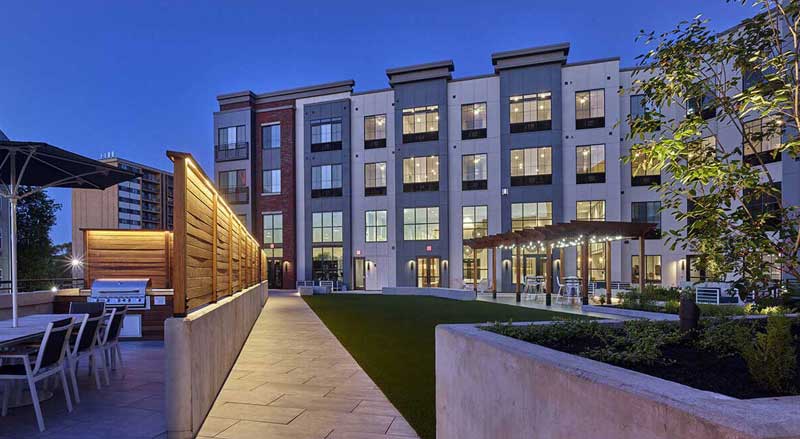Like any other aspect of your home, your patio needs to be maintained. By paying attention to damage caused by overuse, the elements, and pests, you can save time and money. Here is everything you need to know about patio paver restoration and maintenance.
How to Clean, Restore, and Seal Your Patio Pavers
Pavers are considered a low maintenance hardscape material. Keep them swept and clean.
When it comes to washing, it’s good to use soap and water on your pavers every few months. Monthly is best during summer when it’s used the most.
Any stain should be treated immediately but acidic spills can be most damaging. Acidic stains deeply penetrate stone and become almost impossible to remove.
Be mindful of insects and weeds around your pavers. This will prevent damage and costly replacements when full-service maintenance is complete.
Remove Moss and Weeds
This issue is simply fixed but occurs regularly in areas where there is lots of moisture and shade. Use a tool to scrape between pavers removing moss and weeds.
Clear debris away so that it cannot continue to germinate. Spray the area with an organic weed killer to prevent future growth.
The great thing about pavers is that they last for decades. When you notice serious damage to a section, you won’t need to demolish your entire hardscape design.
Individual pavers that are damaged can be switched out. This makes pavers a cost-effective and sustainable hardscape material to use.
Deal with Ants and Other Pests
If you notice dirt mounds forming between the cracks of your pavers, you have an unwelcome pest. To remove them, apply an insecticide or organic alternative into the open holes.
Next, replace the dirt that was removed by the insects. Depending on the severity of the damage, you may need to replace it entirely.
Or, a simple sweep to get the dirt back into the hole may do. Lastly, spray down your surface with a hose.
Professional Patio Cleaning
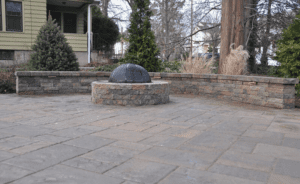
One of the most common ways to clean hardscaped areas is by using a power washer. This works wonders by removing buildup both above and below the surface.
But, because it gets deep beneath the top layer, it can be very easy to ruin your pavers without the proper knowledge.
Precision and proper use of pressure controls is essential. If the pressure is too high or you place the nozzle too close to the surface, it’s easy to damage your patio surface. It can cause serious damage to wood and leave stone porous and cracked.
On the other hand, if you don’t use enough pressure, you’ll be left with soft cleaning. Soft cleaning is a method used to clean above the surface. It removes debris but no buildup or stains.
Patio Maintenance and Repair
Even when your patio is well taken care of, there’s potential for cracks, potholes, or chips. Trees falling, frost heave, and erosion can easily leave you with damage. Regular inspection of your property is a necessary part of hardscape maintenance and repair.
Repair any loose pavers that may have popped up from ground movement. If you notice areas of dirt spread across your pavers, check for grading issues.
Erosion can harm the integrity of your hardscape over time. Cracked and damaged pavers should be replaced. Partial replacements of hardscaped areas are possible if caught early enough.
Sealing Your Patio Pavers
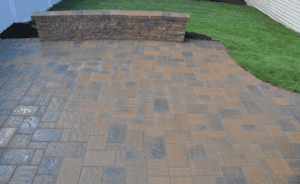
Once your hardscape is cleaned and repaired, it’s time to seal. Sealing patio pavers helps to protect them from the elements and stains. Depending on the sealant you choose, you may need to apply it yearly.
How to Choose a Sealer?
This hardscape maintenance step enhances and protects. There is a wide selection of sealers to choose from.
Start by determining if you need a penetrating or topical compound.
Next, choose between a solvent or water-based sealant. A landscape professional will weigh out the pros and cons specific to your hardscape surface.
Here are some of the different properties of each type of hardscape sealer:
Penetrating Sealant
As the name implies, a penetrating sealant reaches deep down into the surface. By reaching down deep, this type of sealant protects against any stains that would enter the pores of your pavers.
Penetrating sealers are also breathable, which allows any built-up moisture to escape.
The last major aspect to be noted is the appearance. Although some penetrating sealers do apply color, for the most part, they will leave your stone looking natural.
Topical Sealants
Topical sealants remain on the surface. The primary reason to choose this type of sealant is to leave your hardscape surface with a different look.
When the sun hits your coated material, you will notice a beautiful sheen or glossy effect. You should also note that topical sealers require multiple coats.
Solvent Based Sealants
Traditionally solvent-based sealants are often considered to be much better than water-based. This may no longer be true as more eco-friendly options become available. In general, solvent-based is better for dense stone like marble or granite.
Water Based Sealants
Recent advancements have called for making water-based sealants, which are environmentally friendly and more effective.
A Landscaping professional will typically choose to use this type of sealant on porous materials like brick or grout.
Types of Pavers
From pathways for egress to patio poolscapes, hardscapes take on many forms. The look of your landscape design will vary greatly based on the materials you choose for you patio, driveway, or walkway.
Patio pavers are extremely popular due to their durability and customizability. They come in such a wide variety of styles, colors, textures, and sizes.
Patio pavers are made from a wide variety of materials:
- Brick
- Concrete
- Bluestone
- Travertine
- Marble
- Porcelain
- Cobblestone
- Flagstone
Pavers come in a wide variety of colors and may be textured, tumbled, or smooth.
Bring New Life to Your Paver Patio and Make it Last
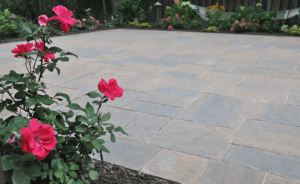
Maintaining your patio regularly will make it last. It’s as simple as that. Putting in the time to keep everything clear of debris, stagnant water, and corrosive compounds is a major benefit.
But keeping moss and weeds away from cracks and shoveling snow is only a start.
Professional cleanings and repairs will keep your patio looking its best. Do it yourself maintenance will help. But getting the work done correctly avoids irreversible damage and future issues.
Put into place a routine of cleaning, repairing, and sealing your pavers for optimal results and longevity.
Our team of professional landscapers is here to help you with all your hardscape maintenance services. Contact us for more information about hardscape maintenance or design.

